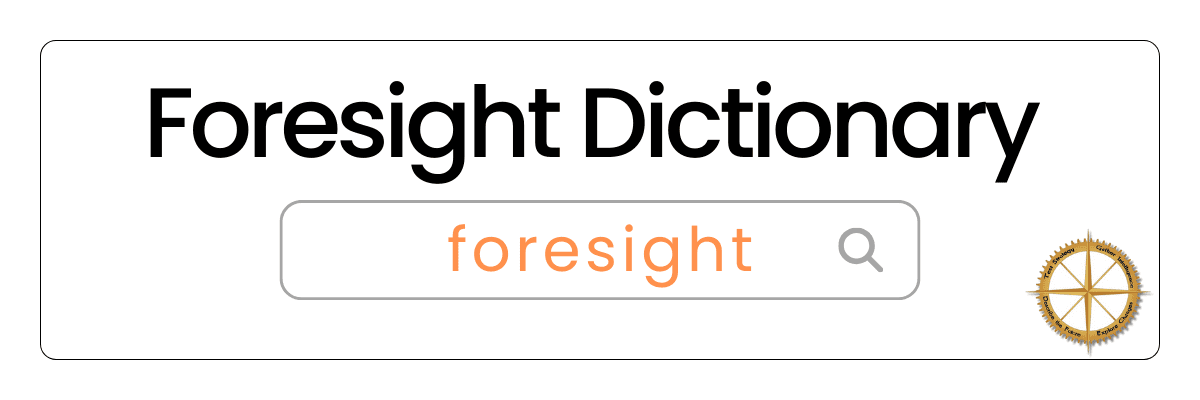

Definition
Foresight is the ability to anticipate and envision possible future developments and trends. It involves identifying potential risks and opportunities to guide strategic planning and decision-making. Actually, more than just strategic planning, futures thinking is often called ‘strategic foresight’ – being more strategic than just considering the future and using foresight as embracing more possibilities than mere planning.
Foresight is not about predicting the future, but about exploring various plausible futures to better prepare for them.
Example
Shell’s anticipation of oil prices.
A notable example of foresight in action is Shell’s use of scenario planning in the 1970s. Shell developed multiple scenarios to anticipate changes in the energy market. One scenario predicted a significant drop in oil prices due to political instability in the Middle East. When the oil crisis of 1973 occurred, Shell was better prepared than its competitors because it had considered this possibility and had strategies in place to mitigate the impact. Much of the work of futures thinking and strategic foresight dates back to Shell’s intentional development of this field.
Ask yourself
What data or information sources can we rely on to inform our foresight?
How can I prepare my organisation to be ready to respond, to be resilient and adaptable in the face of potential scenarios?
What actions can I take today to shape a desirable future?





